PHUKET: An expert from the Department of Special Investigation begins an independent inquiry into human trafficking north of Phuket tomorrow.
Local police still maintain that scores of boatpeople who say they were kidnapped in Bangladesh and taken against their will to Thailand are merely illegal immigrants.
DSI Major Jetuporn Arunleaktawin said today that if the men and boys were told lies to entice them into believing they were travelling to better jobs in another country then beaten and abused and likely to become indentured laborers, that's clearly human trafficking.
Three locals arrested during the rescue of the 134 men and boys in the province of Phang Nga have been charged by police with offences connected to illegal immigration but not human trafficking.
The Director of the province's Takuapa District, Manit Pleantong, believes local community activists, working with his volunteer force, have established beyond doubt that the men and boys were being trafficked.
''An independent investigation will be very helpful,'' he said. ''If the DSI can halt human trafficking through this part of Thailand, it will break the link to the secret jungle camps that still operate in southern border provinces.
''It's time to save Thailand's reputation.''
Wristbands in four different colors on the arms of many of the rescued captives among the first 53 boatpeople apprehended on Saturday indicate they were being tagged for trade to different traffickers.
With one exception, all 134 boatpeople told independent interviewers they had been kidnapped from all over Bangladesh and tossed into the hold of a fishing boat to travel south.
Telephone calls made over the weekend to the families of some of the men in Bangladesh indicate that in some cases the boatpeople may have been enticed to travel voluntarily while in other cases, their tales of being kidnapped seem verifiable.
Some of the families say their menfolk simply vanished without trace. All are between the ages of 17 and 45 and were in apparent good health before their harrowing voyage south.
Late last week, as a second group of boatpeople were still being questioned in Takuapa, a Ministry of Foreign Affairs spokesperson in Thailand said: ''The first group of migrants has now been identified by a multidisciplinary verification team as victims of human trafficking.
''All have now received appropriate treatment according to international standard. Other groups of migrants are currently under the verification process by the multidisciplinary team.''
Once Foreign Affairs is ready, officers from the ministry will proceed to Takuapa with officials from the Bangladesh embassy in Bangkok to interview the boatpeople.
''We need to talk to them as soon as possible,'' said the embassy's Minister (Consular), Muhammad Ehteshamul Hoque.
''These men may not have all been kidnapped but the case certainly bears all the signs of human trafficking.
''We cannot just guess, though, we need to talk to them. We aim to be part of a cooperative investigation.''
Chris Lewa of the Arakan Project, which works mostly with Rohingya fleeing persecution in Burma, told Australia's ABC radio in a broadcast today that so many boats and brokers are now vying for business in Bangladesh that passengers are being abducted and beaten then sold to traffickers.
''They try desperately to fill up the boats,'' she told the AM program.
Conditioned to treat all boatpeople as illegal immigrants rather than investigate human trafficking, the outlook of police not just in Takuapa but all along Thailand's Andaman coast is now being challenged on several fronts.
By categorising thousands of boatpeople arriving in Thailand as illegal immigrants, the police - perhaps unknowingly - allow human trafficking to thrive in secret.
Thailand's only way up from its relegation earlier this year to the lowest possible level on the US State Department's Trafficking in Persons register is to put an end to the growing trade in people.
The ''safe'' sailing season for thousands of boatpeople fleeing south from Bangladesh and Burma is just beginning.
November to April will pose the most severe test yet of whether Thailand's attitude has really changed, or whether the coverups will continue.
Phil Robertson, Deputy Asia Director of Human Rights Watch, said today: ''The Thai government should be focused on protecting these people and ensuring they are able to return home to Bangladesh safely, without fear of being recycled through another round of brokers eager to exploit them.
''Those who are identified as trafficking victims need to receive full protection under the human trafficking law.''
Local police still maintain that scores of boatpeople who say they were kidnapped in Bangladesh and taken against their will to Thailand are merely illegal immigrants.
DSI Major Jetuporn Arunleaktawin said today that if the men and boys were told lies to entice them into believing they were travelling to better jobs in another country then beaten and abused and likely to become indentured laborers, that's clearly human trafficking.
Three locals arrested during the rescue of the 134 men and boys in the province of Phang Nga have been charged by police with offences connected to illegal immigration but not human trafficking.
The Director of the province's Takuapa District, Manit Pleantong, believes local community activists, working with his volunteer force, have established beyond doubt that the men and boys were being trafficked.
''An independent investigation will be very helpful,'' he said. ''If the DSI can halt human trafficking through this part of Thailand, it will break the link to the secret jungle camps that still operate in southern border provinces.
''It's time to save Thailand's reputation.''
Wristbands in four different colors on the arms of many of the rescued captives among the first 53 boatpeople apprehended on Saturday indicate they were being tagged for trade to different traffickers.
With one exception, all 134 boatpeople told independent interviewers they had been kidnapped from all over Bangladesh and tossed into the hold of a fishing boat to travel south.
Telephone calls made over the weekend to the families of some of the men in Bangladesh indicate that in some cases the boatpeople may have been enticed to travel voluntarily while in other cases, their tales of being kidnapped seem verifiable.
Some of the families say their menfolk simply vanished without trace. All are between the ages of 17 and 45 and were in apparent good health before their harrowing voyage south.
Late last week, as a second group of boatpeople were still being questioned in Takuapa, a Ministry of Foreign Affairs spokesperson in Thailand said: ''The first group of migrants has now been identified by a multidisciplinary verification team as victims of human trafficking.
''All have now received appropriate treatment according to international standard. Other groups of migrants are currently under the verification process by the multidisciplinary team.''
Once Foreign Affairs is ready, officers from the ministry will proceed to Takuapa with officials from the Bangladesh embassy in Bangkok to interview the boatpeople.
''We need to talk to them as soon as possible,'' said the embassy's Minister (Consular), Muhammad Ehteshamul Hoque.
''These men may not have all been kidnapped but the case certainly bears all the signs of human trafficking.
''We cannot just guess, though, we need to talk to them. We aim to be part of a cooperative investigation.''
Chris Lewa of the Arakan Project, which works mostly with Rohingya fleeing persecution in Burma, told Australia's ABC radio in a broadcast today that so many boats and brokers are now vying for business in Bangladesh that passengers are being abducted and beaten then sold to traffickers.
''They try desperately to fill up the boats,'' she told the AM program.
Conditioned to treat all boatpeople as illegal immigrants rather than investigate human trafficking, the outlook of police not just in Takuapa but all along Thailand's Andaman coast is now being challenged on several fronts.
By categorising thousands of boatpeople arriving in Thailand as illegal immigrants, the police - perhaps unknowingly - allow human trafficking to thrive in secret.
Thailand's only way up from its relegation earlier this year to the lowest possible level on the US State Department's Trafficking in Persons register is to put an end to the growing trade in people.
The ''safe'' sailing season for thousands of boatpeople fleeing south from Bangladesh and Burma is just beginning.
November to April will pose the most severe test yet of whether Thailand's attitude has really changed, or whether the coverups will continue.
Phil Robertson, Deputy Asia Director of Human Rights Watch, said today: ''The Thai government should be focused on protecting these people and ensuring they are able to return home to Bangladesh safely, without fear of being recycled through another round of brokers eager to exploit them.
''Those who are identified as trafficking victims need to receive full protection under the human trafficking law.''

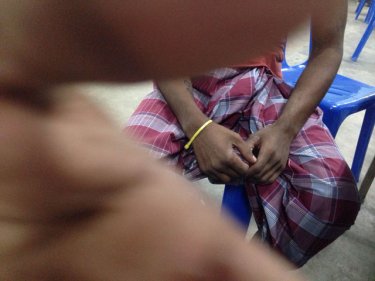



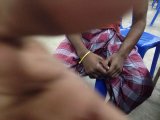
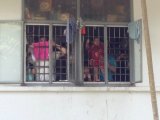
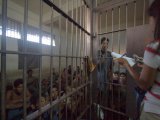
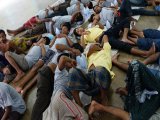
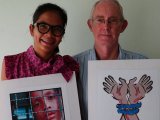
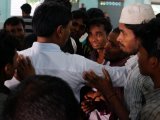
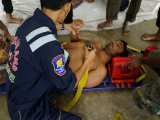
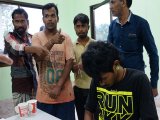
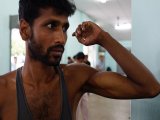
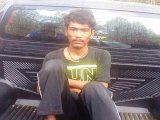
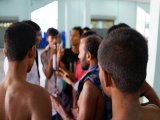
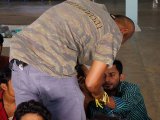



Recycling lives of detainees have been seen since 2013 .If related authorities have will to eliminate trafficking, they should have to trace out Rohingya gangs involving directly in this circle. Authorities should have to stop any Rohingya to reach the detainees ,use them as informers in the name of rescue operation ,interpreters and helping food supply to detainees. These type of Rohingyas are very dangerous to be trusted . They are very handful persons but control whole trafficking as share holders. These people have hands stealing people from detention and children -women welfare centers. Every concerned parties should have to understand that every victim can be sold minimum 2000 USD .If there are 100X 2000=200000 USD (Two hundred thousands US Dollars) can make shortly.This is one of the most profitable money making business. More profitable than drugs .Still thousands are at the hands of traffickers. Traffickers and their agents are very strong and their networks is so systematically .There will many times more Rohingya boat people due to new style of atrocity in the name of citizenship varification in Arakan. World community must come forwards to save the Rohingya.
Posted by Maung Kyaw Nu,President of Burmese Rohingya Association in Thailand (BRAT) on October 21, 2014 05:45